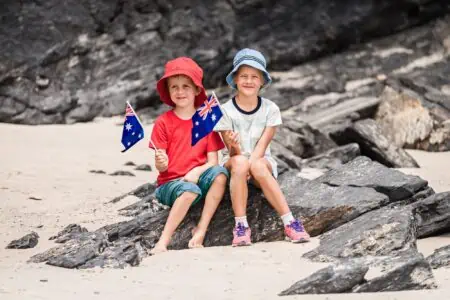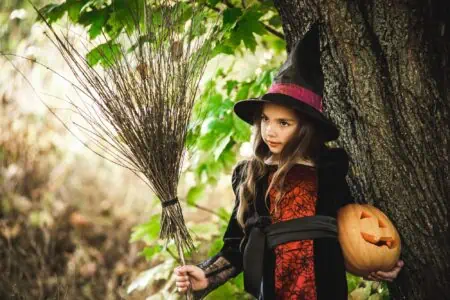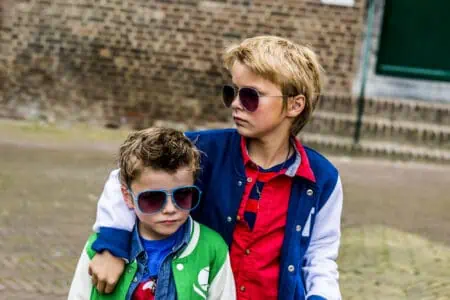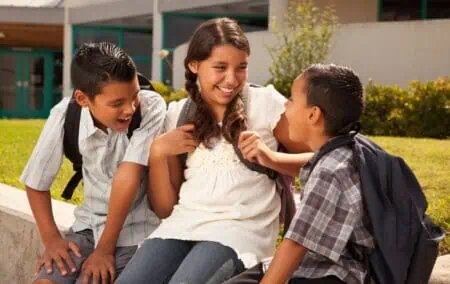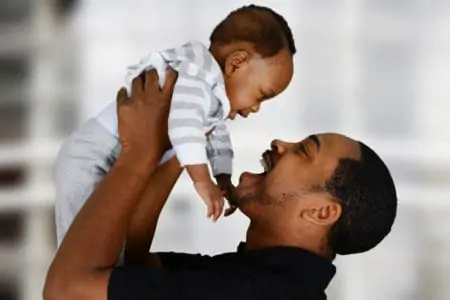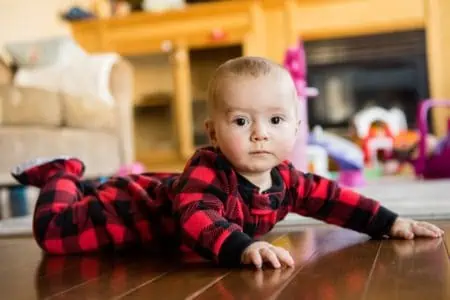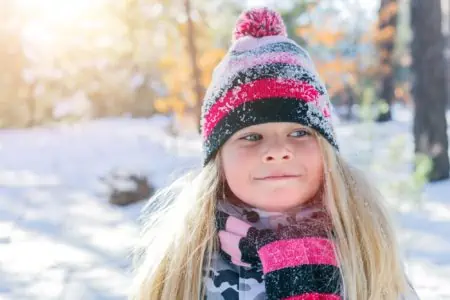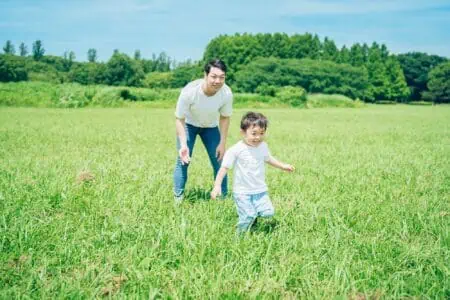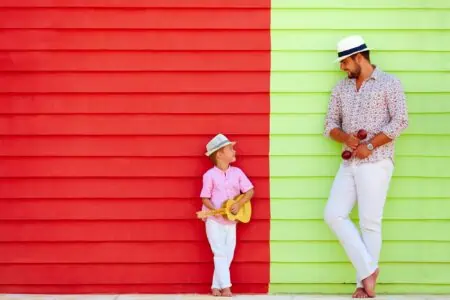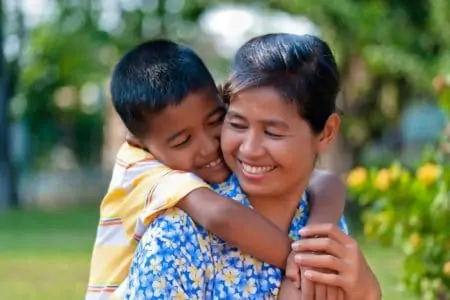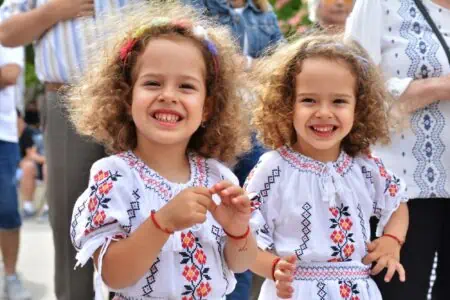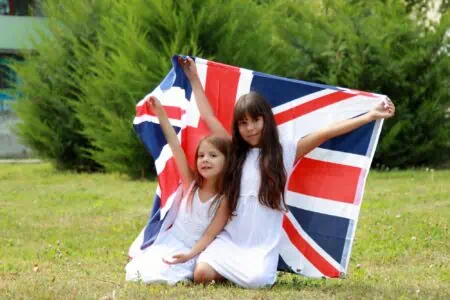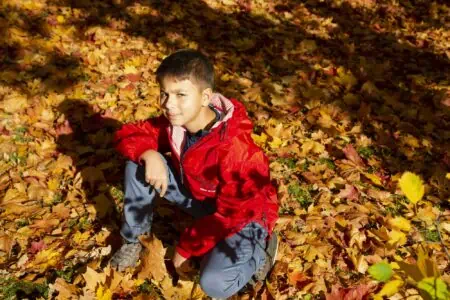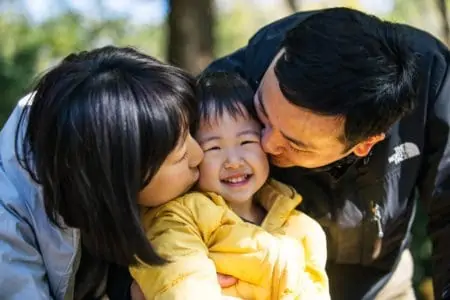From English and Irish to Greek and Spanish, the peoples who call Australia home come with a variety of naming traditions. You might lose your way as you go back generations to discover the names of immigrants and native Aboriginal people.
Let us help you dive into Australian surnames and show you what makes each one’s origin special. Decide upon your favorite variation and pronunciation while taking inspiration from how popular different Australian family names are globally.
100 Popular Australian Surnames
Get packing for the land down under with Australian last names to make an Aussie proud.
Alinta
Alinta derives from an Aboriginal language in South Australia, meaning “flame.” It’s better known as a girl’s name and is one of the main characters in the 1981 miniseries Women of the Sun.
- Origin: Australian, Aboriginal
- Meaning: Fire
- Pronunciation: Ah-LIHN-taa
- Popularity: Alinta is very rare worldwide and mostly used in Nigeria.
Alira
Alira is somewhat obscure among Australian last names. It’s an Aboriginal name meaning “gem quartz,” also used as a girl’s name. Alira also means “eagle” in Latin.
- Origin: Australian, Aboriginal
- Meaning: Gem quartz
- Pronunciation: Ah-LEER-ah
- Variations: Allira, Allyra
- Popularity: Alira is rare worldwide, mainly used in Uganda, and ranked 1,478th in Burkina Faso in 2014.
Anderson
Anderson is based on the Middle English Ander, a form of Andrew. It’s very typical in Scotland and appears as Andersen in Scandinavian countries.
- Origin: Australian, English
- Meaning: Son of Andrew
- Pronunciation: AEN-der-Sahn
- Variations: Andersen, Anderssen
- Namesakes: Gillian Anderson, an American-English actress best known for The X-Files. Laurie Anderson, an American avant-garde artist known for the song “O Superman,” which hit 2nd on the 1981 UK singles chart.
- Popularity: Anderson ranked 367th worldwide, is primarily used in the U.S., and ranked 7th in Australia in 2014.
Barker
Barker has been used as a surname since the 13th century and was originally for those who tanned leather. It became a patronymic family name for the descendents of the tanners whose motto is “trust, but in whom take care.”
- Origin: Australian, English
- Meaning: Leather tanner
- Pronunciation: BAAR-Ker
- Variations: Barkar, Barkur
- Namesakes: Cheryl Barker, an Australian opera singer with the English National Opera. Emily Barker, an Australian composer for the BBC drama Wallander.
- Popularity: Barker is uncommon worldwide, mostly used in the U.S., and ranked 168th in Australia in 2014.
Bell
Bell was first an occupational last name for a “bell ringer” or “bell maker.” It’s also associated with someone living near a bell and is based on the given name Bel.
- Origin: Australian, English
- Meaning: Bell ringer
- Pronunciation: BEHL
- Variations: Belle, Behle
- Namesakes: Alison Bell, an Australian actress appearing in the series Laid. Thomas Bell, an Australian rules footballer for Brisbane Lions.
- Popularity: Bell ranked 874th worldwide, is mainly used in the U.S., and ranked 41st in Australia in 2014.
Bird
Bird comes from the Old English “bridde,” meaning “bird,” and was given to someone with “bird-like qualities.” It was used for a “bird catcher” or anyone whose life relates to the winged ones.
- Origin: Australian
- Meaning: Bird-like
- Pronunciation: BIHRD
- Variations: Byrd
- Namesakes: Aaron Bird, an Australian cricketer for New South Wales. Alan Bird, an Australian member of the Australian House of Representatives from 1949 to 1962.
- Popularity: Bird is uncommon worldwide, primarily used in the U.S., and ranked 249th in Australia in 2014.
Blackman
Blackman is based on the Old English first name Blaecmon, meaning “dark man.” It has origins from Scotland to the Vikings and includes the kings of Bernicia.
- Origin: Australian, English
- Meaning: Dark man
- Pronunciation: BLAAHK-man
- Variations: Blackmann
- Namesakes: Andrew Blackman, an Australian actor who founded the Complete Works Theatre Company in 1999. John Blackman, an Australian TV presenter for Hey Hey It’s Saturday from 1971 to 1999.
- Popularity: Blackman is rare worldwide, primarily used in the U.S., and ranked 1,440th in Australia in 2014.
Bourne
Bourne was one of many old Australian surnames from a location. It means “at the burn (stream),” taken from the Old English “burna,” meaning “spring.”
- Origin: Australian, English
- Meaning: Living near a steam
- Pronunciation: BAORN
- Variations: Borne
- Namesakes: Danika Bourne, an Australian ice dancer who competed at two Four Continents Championships. Una Mabel Bourne, an Australian pianist with 1915 recordings for the English Gramophone Company.
- Popularity: Bourne is rare worldwide, mainly used in the U.S., and ranked 900th in Australia in 2014.
Brown
Brown means “the son of Brun” for those named Brown or Brownson. It’s also related to the Scottish-Gaelic Mac-a-Bhruithainn, meaning “judge.” Between 2018 and 2023, Brown ranked 2nd in Canada and Scotland and 4th in England and the U.S.
- Origin: Australian, English
- Meaning: Dark complexion
- Pronunciation: BROUN
- Variations: Browne
- Namesakes: Bille Brown, an Australian actor with the Royal Shakespeare Company. Hilary Brown, a Canadian journalist for CBC News.
- Popularity: Brown ranked 206th worldwide, is primarily used in the U.S., and ranked 4th in Australia in 2014.
Bryans
Bryans is a slightly weird form of the Celtic Brian, meaning “high” or “noble.” It also connects with the Norman Brionne, based on French location called Brionne.
- Origin: Australian, Celtic
- Meaning: Son of Bryan
- Pronunciation: BRAEY-ahns
- Variations: Bryan, Bryant
- Namesakes: Lina Bryans, an Australian modernist painter with works at MOMA in New York in 1941. Billy Bryans, a Canadian musician and one of the founders of The Parachute Club.
- Popularity: Bryans is rare worldwide, mainly used in the U.S., and ranked 912th in Northern Ireland.
Cameron
Cameron is rooted in the Gaelic “cam,” meaning “crooked,” and either from “shron,” meaning “nose,” or “brun,” meaning “hill.” There’s also a Scottish place called Cameron near Edinburgh.
- Origin: Australian, Gaelic
- Meaning: Crooked
- Pronunciation: KAEM-ah-Rahn
- Variations: Camerron, Cammeron
- Namesakes: Archie Cameron, an Australian leader of the Country Party from 1939 to 1940. Eoin Cameron, an Australian radio host for the 720 ABC Perth breakfast show.
- Popularity: Cameron is uncommon worldwide, mainly used in the U.S., and ranked 84th in Australia in 2014.
Campbell
Campbell derives from the Gaelic Caimbeul, meaning “wry (or crooked) mouth.” It’s one of a few Australian family names based on a nickname and is linked with early Gaelic rulers.
- Origin: Australian, Gaelic
- Meaning: Wry mouth
- Pronunciation: KAEM-Behl
- Variations: Campbele, Campbelle
- Namesakes: Preston Campbell, an Australian rugby league footballer for the Cronulla-Sutherland Sharks. Graeme Campbell, an Australian member of the Australian House of Representatives from 1980 to 1998.
- Popularity: Campbell ranked 657th worldwide, is primarily used in the U.S., and ranked 26th in Australia in 2014.
Chaloner
Chaloner may sound like a funny occupation, but it’s the basis for this English-Australian last name. It’s taken from the Old English “chaloun,” meaning “blanket.”
- Origin: Australian, English
- Meaning: Blanket
- Pronunciation: Chah-LOWN-er
- Variations: Challoner
- Namesakes: Gary Chaloner, an Australian comic book artist known for The Undertaker Morton Stone. John Seymour Chaloner, a British journalist who co-founded the German newsweekly Der Spiegel.
- Popularity: Chaloner is very rare worldwide, mostly used in England, and ranked 88th in the Falkland Islands in 2014.
Chapman
Chapman is like multiple Australian last names based on occupations. A “chapman” was first known as a “céapmann,” or a “merchant.” It uses the root “céapan,” meaning “to buy or sell,” to inspire the sale.
- Origin: Australian, English
- Meaning: Merchant
- Pronunciation: CHAEP-Maen
- Variations: Chepmon
- Namesakes: Ernest Chapman, an Australian rower and bronze medalist at the 1952 Summer Olympics. Jan Chapman, an Australian film producer known for The Piano (1993).
- Popularity: Chapman ranked 1803rd worldwide, is mainly used in the U.S., and ranked 86th in Australia in 2014.
Chen
Chen dates back to the ancient Chinese Emperor Shun, who had the surname Gui. It means everything from “old” “to explain” and is also the name of a Chinese state.
- Origin: Australian, Chinese
- Meaning: Old
- Pronunciation: CHEYN
- Variations: Cheng
- Namesakes: Eddy Chen, an Australian musician and YouTuber in the TwoSet Violin duo. Terry Chen, a Canadian actor known for the 2000 film Almost Famous.
- Popularity: Chen ranked 4th worldwide, is primarily used in China, and ranked number one in Taiwan in 2014.
Colling
Colling doesn’t sound like it means “the son of Nicholas,” but is based on the Old Norse given name Kollungr. It’s also associated with the Old English Colling from Cole.
- Origin: Australian, English
- Meaning: Victory of the people
- Pronunciation: KAUL-ing
- Variations: Collin, Collings
- Namesakes: Gary Colling, an Australian rules footballer for St Kilda. Belinda Colling, a New Zealand netball player, and gold medalist at the Netball World Championships.
- Popularity: Colling is rare worldwide, mostly used in the U.S., and ranked 205th in Luxembourg in 2014.
Crawford
Crawford is made up of the Old English “crāwe,” meaning “crow,” and “ford,” meaning a “ford in the water.” It also indicated someone “from Crawford,” several locations in Britain.
- Origin: Australian
- Meaning: Crow ford
- Pronunciation: KRAO-Faord
- Variations: Crawferd, Crawforde
- Namesakes: Craig Crawford, the Australian Minister for Seniors and Disability Services since 2020. Joan Crawford, an American actress who won an Oscar for Mildred Pierce (1945).
- Popularity: Crawford ranked 1,811th worldwide, is mainly used in the U.S., and ranked 157th in Australia in 2014.
Crowe
Crowe was first a nickname for someone who “resembled a crow.” This could mean anything from bird-like features to dark hair or a great memory. It’s also an Anglo form of the Gaelic MacConchrada, meaning “son of Cú-chrada.”
- Origin: Australian, English
- Meaning: Crow
- Pronunciation: KROW
- Variations: Crow, Krowe
- Namesakes: Russell Crowe, a New Zealand actor and winner of an Academy Award, two Golden Globe Awards, and a British Academy Film Award. Robert Crowe, an Australian cyclist who competed at the 1992 Barcelona Olympics.
- Popularity: Crowe is rare worldwide, primarily used in the U.S., and ranked 493rd in Australia in 2014.
Davis
Davis is a Welsh example of a “son of David,” a classic, meaning “beloved,” as does the Welsh Daffyd. The Welsh are the fifth largest group in Australia after the English, Irish, and Scottish.
- Origin: Australian, Welsh
- Meaning: Son of David
- Pronunciation: DEY-Vihs
- Variations: Davies, Daviss
- Namesakes: Cassie Davis, an Australian singer whose album Differently was released in 2009. Essie Davis, an Australian actress appearing in Miss Fisher’s Murder Mysteries.
- Popularity: Davis ranked 311th worldwide, is mostly used in the U.S., and ranked 23rd in Australia in 2014.
Dixon
Dixon officially means “the son of Richard” and has been in use since the 14th-century. The nickname for Richard is Dick, which is why Dixson means “son of Dick.”
- Origin: Australian, English
- Meaning: Son of Dick
- Pronunciation: DIHK-sahn
- Variations: Dickson
- Namesakes: Geoff Dixon, the Australian CEO of Qantas Airlines. Donna Dixon, an American actress known for the sitcom Bosom Buddies.
- Popularity: Dixon ranked 1,583rd worldwide, is mainly used in the U.S., and ranked 141st in Australia in 2014.
Doyle
Doyle may have been O’Doyle, based on the Irish surname Ó’Dubhghaill, meaning descendant of Dubhghall.” It’s also linked to the place name “de Oilgi” or “de Ouilli,” in France.
- Origin: Australian Irish
- Meaning: Descendant of Dubhghall
- Pronunciation: DOYL
- Variations: Dowle, Doyel
- Namesakes: Christopher Doyle, an Australian-Hong Kong cinematographer for Chungking Express (1994). Melissa Doyle, an Australian radio presenter for Weekend Breakfast on Smooth FM.
- Popularity: Doyle is uncommon worldwide, primarily used in the U.S., and ranked 171st in Australia in 2014.
Duncan
Duncan means “son of Duncan” and “man with brown hair.” It derives from the Gaelic Donncheann, made up of “donn,” meaning “chieftain,” and “ceann,” meaning “head.”
- Origin: Australian, Gaelic
- Meaning: Brown-haired man
- Pronunciation: DUHN-Kahn
- Variations: Doncan, Dunckan
- Namesakes: Carmen Duncan, an Australian actress known for the 1980 film Harlequin. Alasdair Duncan, an Australian journalist for the music magazine Rave.
- Popularity: Duncan ranked 1,916th worldwide, is mostly used in the U.S., and ranked 132nd in Australia in 2014.
Dwyer
Dwyer originated with the Gaelic Ó’Duibhir, composed of “dubh,” meaning “dark,” and “odhar,” meaning “sallow.” The Dwyer clan is based in County Tipperary, where Dwyer meant a “dyer of fabrics.”
- Origin: Australian, Gaelic
- Meaning: Dark wise one
- Pronunciation: DWAEY-er
- Variations: Dwier, Dwire
- Namesakes: Jamie Dwyer, an Australian field hockey player for the Queensland Blades. Marc Dwyer, an Australian radio presenter at 101.3 Sea FM.
- Popularity: Dwyer is rare worldwide, mainly used in the U.S., and ranked 211th in Australia in 2014.
Elmaloglou
Elmaloglou’s meaning is unknown, but it’s one of the many Australian last names with Turkish and Greek heritage. In 2021, over 90,000 Australian residents claimed Greek heritage, while over 30,000 Aussie people in 2016 were Turkish.
- Origin: Australian, Greek-Turkish
- Meaning: Unknown
- Pronunciation: ELM-Ah-lo-Glou
- Namesakes: Rebekah Elmaloglou, an Australian actress known for the series Home and Away. Sebastian Elmaloglou, an Australian actor appearing on Home and Away from 2002 to 2004.
- Popularity: Elmaloglou is extremely rare worldwide, with 102 known occurrences in 2014, in Greece.
Evans
Evans is a patronymic Welsh surname meaning “the son of Evan,” which becomes more traditional as Ifan. Evan and Ifan are both Welsh variations of John, making Evans similar to Johnson.
- Origin: Australian, Welsh
- Meaning: Son of Evan
- Pronunciation: EH-Vahnz
- Variations: Evan
- Namesakes: Anthony Evans, an Australian cross-country skier who competed at the 1992 Winter Olympics. Beryl Evans, an Australian member of the New South Wales Legislative Council from 1984 to 1995.
- Popularity: Evans ranked 655th worldwide, is primarily used in the U.S., and ranked 22nd in Australia in 2014.
Ferguson
Ferguson is the Anglo spelling of the Scottish-Gaelic Macfhearghus, used for the “son of Fergus.” It also means “son of the angry one,” which means don’t mess with the Ferguson family!
- Origin: Australian, Gaelic
- Meaning: Son of Ferguson
- Pronunciation: Fer-gah-SSAHN
- Variations: Fergusson
- Namesakes: Alan Ferguson, the 22nd President of the Australian Senate from 2007 to 2008. Tim Ferguson, an Australian comedian on the show Friday Night Live in 1988.
- Popularity: Ferguson ranked 1,744th worldwide, is mainly used in the U.S., and ranked 108th in Australia in 2014.
Fisher
Fisher is one of the most common surnames for a “fisherman” based on the Old English “fiscere,” meaning “he who fishes.” It also appears as an altered version of the German Fischer for Jewish Americans.
- Origin: Australian,
- Meaning: Fisherman
- Pronunciation: FIH-Shehr
- Variations: Fischer, Fisscher
- Namesakes: Ashley Fisher, an Australian tennis player who peaked at 19th in 2009. Isla Fisher, an Australian actress known for the series Home and Away.
- Popularity: Fisher ranked 1,230th worldwide, is mainly used in the U.S., and ranked 102nd in 2014.
Foster
Foster is a slightly altered variant for Forester, an occupational surname for a “forest warden” or “gamekeeper.” It’s also associated with the Old English Forester, meaning “shearer.”
- Origin: Australian
- Meaning: Forester
- Pronunciation: FOWST-er
- Variations: Forrester
- Namesakes: Bren Foster, an Australian actor appearing in The Last Ship on TNT. Lindsay Foster, an Australian judge of the Federal Court of Australia from 2008 to 2020.
- Popularity: Foster ranked 1,178th worldwide, is primarily used in the U.S., and ranked 113th in Australia in 2014.
Fraser
Fraser is based on the French root “fraise,” meaning “strawberry.” It has other French forms like de Frisselle, but this family’s motto is “Je suis prest,” meaning “I am ready.”
- Origin: Australian, French
- Meaning: Strawberry
- Pronunciation: FRAEY-sher
- Variations: Fraiser, Frasier, Frazer
- Namesakes: Bonnie Fraser, an Australian musician and lead singer of the band Stand Atlantic. Marcus Fraser, an Australian golfer on the European Tour.
- Popularity: Fraser is uncommon worldwide, primarily used in the U.S., and ranked 101st in Australia in 2014.
Freeman
Freeman comes from the Old English “frēomann,” meaning “free-born man.” It’s an occupational name for “freedman,” or someone higher than a serf in the Middle Ages.
- Origin: Australian,
- Meaning: Free-born man
- Pronunciation: FRIY-Maen
- Variations: Freemen, Freemyn
- Namesakes: Cathy Freeman, an Aboriginal-Australian sprinter and the ninth-fastest woman of all time. Emma Freeman, an Australian director and the first woman to win Tropfest in 2002.
- Popularity: Freeman ranked 1,652nd worldwide, is mainly used in the U.S., and ranked 176th in Australia in 2014.
Freemason
Freemason is a cool example of the occupational surname Mason, meaning “stoneworker.” Freemasonry, or Masonry, is a world-famous organization started by stonemasons in the 13th century.
- Origin: Australian, English
- Meaning: Member of Freemasons
- Pronunciation: FREE-maey-Sohn
- Variations: Mason
- Popularity: Freemason is extremely rare worldwide, with just two known occurrences in 2014, in Thailand.
Gill
Gill is one of many Australian surnames based on ancestry. It may mean “son of Gill,” and when spelled Gil, it’s also a Punjabi clan, meaning “moisture.”
- Origin: Australian, English
- Meaning: Son of Gill
- Pronunciation: GIHL
- Variations: Gil, McGill
- Namesakes: Keenu Gill, a Hong Kong cricketer for Kowloon Cricket Club Maidens. Raminder Gill, an Indian-Canadian member of the Legislative Assembly of Ontario from 1999 to 2003.
- Popularity: Gill ranked 1,944th worldwide, is primarily used in the U.S., and ranked 200th in Australia in 2014.
Green
Green derives from the Old English “grene,” and was given to someone who lived “near or at a village green.” Green applies to any grassy area and is also a popular surname for Jewish Americans.
- Origin: Australian
- Meaning: At the green
- Variations: Greene
- Namesakes: Belinda Green, an Australian model, crowned Miss World in 1972. Bryan Green, an Australian member of the Tasmanian House of Assembly from 1998 to 2017.
- Popularity: Green ranked 634th worldwide, is mainly used in the U.S., and ranked 200th in Australia in 2014.
Grgic
Grgic is a Croatian variation of patronymic surnames, based on Grgur, meaning Gregory. In addition to the former Yugoslavia, Grgic occurs in Australia, where Croatians emigrated in the 1960s and 1970s.
- Origin: Australian, Croatian
- Meaning: Son of Grgur
- Pronunciation: GUHR-gihch
- Variations: Grgich
- Namesakes: Ilija Grgic, an Australian rules footballer for Footscray. Mike Grgich, a Croatian-American winemaker inducted into the Culinary Institute of America’s Vintner’s Hall of Fame in 2008.
- Popularity: Grgic is rare worldwide and mainly used in Austria, where it ranked 1,936th in 2014.
Harris
Harris indicated a “son of Harry,” the nickname for Henry that means “home-ruler.” It originated in the 14th-century and is linked to the Gaelic surname O’Earchadha.
- Origin: Australian, Irish
- Meaning: Son of Harry
- Pronunciation: HHEH-Rihs
- Variations: Harriss, Harrys
- Namesakes: Holly Harris, an Australian figure skater and the 2019 Australian national champion. Louise Harris, an Australian actress known for Snowtown (2011).
- Popularity: Harris ranked 482nd worldwide, is primarily used in the U.S., and ranked 17th in Australia in 2014.
Harvey
Harvey is based on a Breton first name, Huiarnviu, and is made up of “hoiarn,” meaning “iron,” and “viu,” meaning “blazing.”
- Origin: Australian
- Meaning: Son of Harvey
- Pronunciation: HHAAR-Viy
- Variations: Harvie, Harvy
- Namesakes: Neil Harvey, an Australian cricket player inducted into the Australian Cricket Hall of Fame in 2000. Liza Harvey, an Australian member of the Legislative Assembly of Western Australia from 2008 to 2021.
- Popularity: Harvey ranked 1,896th worldwide, is mostly used in the U.S., and ranked 93rd in Australia in 2014.
Herzbrun
There is very little information on Herzbrun. If you look at the German Herzbrun, “hertz” means “frequency,” while “brun” means “brown,” which isn’t much clearer.
- Origin: Australian, German
- Meaning: Unknown
- Pronunciation: HEHRS-brun
- Variations: Hertsbrunn, Hertsbrun
- Popularity: Herzbrun is extremely rare worldwide, with 146 known occurrences in 2014, primarily in the U.S.
Hill
Hill has obvious connections to a place located “at the hill.” It’s sometimes linked to Hildebrand or other German surnames with the root “hild,” meaning “battle.”
- Origin: Australian, English
- Meaning: A person who lives on a hill
- Variations: Hil
- Namesakes: Ernestine Hill, an Australian journalist known for The Territory. Jo Hill, an Australian women’s basketball player for the Australia women’s national basketball team.
- Popularity: Hill ranked 677th worldwide, is mainly used in the U.S., and ranked 17th in Australia in 2014.
Holmes
Holmes comes from the Middle English “holm,” meaning “island.” It was used for someone living “at the holm,” on an island or land near a river. It’s also an Anglo variation of the Gaelic MacThomáis.
- Origin: Australian, English
- Meaning: Lives on an island
- Pronunciation: HHOLMZ
- Variations: Holmmes
- Namesakes: Catherine Holmes, the 19th Chief Justice of the Supreme Court of Queensland from 2015 to 2022. Jacob Holmes, an Australian basketball player for the Adelaide 36ers.
- Popularity: Holmes ranked 1,725th worldwide, is primarily used in the U.S., and ranked 123rd in Australia in 2014.
Iluka
Iluka is also a girl’s name that originated with the Yaygir Aboriginal people located in Northern Rivers. Iluka is also the name for two towns in Australia though its dialect is now extinct.
- Origin: Australian, Aboriginal
- Meaning: By the sea
- Pronunciation: Ih-LUW-kah
- Popularity: Iluka is very rare worldwide and mostly used in the DR Congo.
Irwin
Irwin stems from the Old English Eoforwine, meaning “friend of a boar.” It also denotes someone “of Irvine,” a location in Dumfriesshire, England.
- Origin: Australian, English
- Meaning: Boar friend
- Pronunciation: EHR-Wihn
- Variations: Irvin, Irwine, Irwinn
- Namesakes: Ashton Irwin, an Australian musician and drummer of the band 5 Seconds of Summer. Julia Irwin, an Australian member of the House of Representatives from 1998 to 2010.
- Popularity: Irwin is rare worldwide, mainly used in the U.S., and ranked 473rd in Australia in 2014.
Jedda
Jedda is one of many native Australian family names originating with the indigenous peoples of Australia. It uses the Noongar “djida,” meaning “wren,” but is also a girl’s name meaning “little wild goose.”
- Origin: Australian, Aboriginal
- Meaning: Wren
- Pronunciation: JEHY-dah
- Variations: Jeddah
- Popularity: Jedda is very rare worldwide and primarily used in Morocco.
Jiemba
Jiemba is one of a few Australian-Aboriginal surnames that’s also a given name. It means “venus” for boys and is nearly extinct today.
- Origin: Australian, Aboriginal
- Meaning: Laughing star
- Pronunciation: JHEM-baa
- Popularity: Jiemba is extremely rare worldwide, with just two known occurrences in 2014, in Brazil.
Johnson
Johnson may mean “son of John,” which relates to many versions of John worldwide. It originated with the Hebrew name Yohanan, meaning “Yahweh has favored,” with roots worldwide.
- Origin: Australian, English
- Meaning: Son of John
- Pronunciation: JHAAN-Sahn
- Variations: Johnsen, Johnston
- Namesakes: Brian Johnson, an English musician and the third lead singer of the Australian rock band AC/DC. Vaughan Johnson, an Australian member of the Legislative Assembly of Queensland from 1989 to 2015.
- Popularity: Johnson ranked 173rd worldwide, is mostly used in the U.S., and ranked 8th in Australia in 2014.
Jones
Jones is the Welsh variation of Johnson since it means “son of John.” Wales has very unique versions of John, like Ieuan and Iowan. Jones is the most popular surname in Wales, and Australia isn’t far behind.
- Origin: Australian, Welsh
- Meaning: Son of John
- Pronunciation: JHOWNZ
- Namesakes: Lana Jones, an Australian principal dancer with The Australian Ballet from 2002 to 2019. Tony Jones, an Australian journalist for the Australian Broadcasting Corporation.
- Popularity: Jones ranked 208th worldwide, is mainly used in the U.S., and ranked 2nd in Australia in 2014.
Kelly
Kelly is taken from the Gaelic Ó’Ceallaigh, meaning “descendant of Ceallach.” It also means fighter, which inspired Ned Kelly, the 19th-century Australian outlaw.
- Origin: Australian, Irish
- Meaning: Warrior
- Pronunciation: KEH-Liy
- Variations: Kelley, Kellye
- Namesakes: Fran Kelly, an Australian radio presenter for RN Breakfast from 2005 to 2021. Todd Kelly, an Australian racing driver who competed in the Virgin Australia Supercars Championship.
- Popularity: Kelly ranked 828th worldwide, is primarily used in the U.S., and ranked 15th in Australia in 2014.
Kemp
Kemp comes from the Old English “cempa,” meaning “champion.” It was a medieval title given to a jouster but became typical for a knight and soldier as time passed.
- Origin: Australian, English
- Meaning: Soldier
- Pronunciation: KEHMP
- Variations: Kempe
- Namesakes: Matthew Kemp, an Australian footballer for the Adelaide Raiders. Rod Kemp, a member of the Australian Senate from 1990 to 2008.
- Popularity: Kemp is uncommon worldwide, mostly used in the U.S., and ranked 270th in Australia in 2014.
Kidman
Kidman derives from the Middle English “kid(d)e,” meaning “kid,” a term for a young deer or goat. It was given to a goatherd or anyone working with livestock.
- Origin: Australian, English
- Meaning: Goatherd
- Variations: Kideman, Kydeman
- Namesakes: Nicole Kidman, an Australian actress named one of the greatest actors of the 21st century by the New York Times in 2020. Antonia Kidman, an Australian journalist for NBN Television and sister to Nicole Kidman.
- Popularity: Kidman is very rare and mainly used in the U.S.
Killara
Killara means “permanent” and “always there” for the Aboriginal people of Australia. It’s also a suburb in the Ku-ring-gai municipality located outside of Sydney.
- Origin: Australian, Aboriginal
- Meaning: Permanent
- Pronunciation: Kih-LAAR-ah
- Variations: Killarah
- Popularity: Killara is extremely rare worldwide, with 19 known occurrences in 2014, primarily in India.
Kim
Kim is the most popular Korean surname, associated with the Chinese “geum,” meaning “medal” and “iron.” It has royal associations, linked to the ancient Silla dynasty and the Gaya confederacy in Korea.
- Origin: Australian, Korean
- Meaning: Gold
- Pronunciation: KIYM
- Variations: Keum
- Namesakes: Tanya Kim, a Canadian co-host of the program etalk from 2003 to 2014. Marina Kim, a Korean-Russian host of the Good Morning program on Channel One.
- Popularity: Kim ranked 25th worldwide and is primarily used in North and South Korea, ranking number one in 2014.
King
King is the most royal of Aussie last names that started as a title for a tribal leader. It derives from the Old English “cyning,” meaning “scion of the noble kin.”
- Origin: Australian, English
- Meaning: The king
- Pronunciation: KIHNG
- Namesakes: Amanda King, an Australian documentary filmmaker known for An Evergreen Island (2000). Laurie King, an Australian rules footballer for Sturt.
- Popularity: King ranked 592nd worldwide, is mainly used in the U.S., and ranked 18th in Australia in 2014.
Klein
In German, Klein means “small,” plus “neat” and “clean.” It has the same “little” meaning in Dutch, German, and Afrikaans.
- Origin: Australian, German
- Meaning: Small
- Pronunciation: KLAEYN
- Variations: Kline
- Namesakes: Robin Klein, an Australian children’s book author who won the 1990 CBCA Children’s Book of the Year Award: Older Readers. Brydan Klein, an Australian-British tennis player who won the Junior 2007 Australian Open.
- Popularity: Klein ranked 1,157th worldwide and is primarily used in Germany, where it ranked 15th in 2014.
Kovacic
Kovacic stems from the Croatian “kovač,” meaning “blacksmith.” It’s a very common surname in Croatia, Slovenia, and Hungary. The biggest wave of Croatian immigrants came to Australia in the 1960s and 1970s.
- Origin: Australian, Croatian
- Meaning: Blacksmith
- Pronunciation: Koh-VAAH-chich
- Variations: Kovachic
- Namesakes: Antun Kovacic, an Australian footballer for the Newcastle Jets. Maria Kovacic, an Australian senator for New South Wales since 2023.
- Popularity: Kovacic is very rare worldwide and mostly used in the U.S.
Kumar
Kumar was first an Indian title for a “prince,” for the son of a Rana. It’s based on the Sanskrit “kumāra,” meaning “child,” and refers to the god Kārtikeya, the son of Shiva.
- Origin: Australian, Indian
- Meaning: Young prince
- Pronunciation: Kuw-MAAR
- Namesakes: Chetan Kumar, an American actor appearing in Aa Dinagalu (2007). Nitish Kumar, the Chief Minister of Bihar since 2015.
- Popularity: Kumar ranked 11th worldwide, is mainly used in India, and ranked number one in Fiji in 2014.
Laing
Laing is primarily Scottish but has roots in the Old English “long,” meaning “tall.” It’s associated with the similar surnames Long and Lang and occurs in Australia and New Zealand.
- Origin: Australian, English
- Meaning: Long
- Pronunciation: LAAIHNG
- Variations: Lang
- Namesakes: Roy Laing, an Australian rules footballer for Essendon. Marie Laing, a Canadian member of the Legislative Assembly of Alberta from 1986 to 1993.
- Popularity: Laing is rare worldwide, primarily used in the U.S., and ranked 1,091st in Australia in 2014.
Lee
In Chinese, Lee means “plum tree” and was first used as Li during the Tang dynasty. Lee or Li represents the second-most common surname in China.
- Origin: Australian, Chinese
- Meaning: Plum tree
- Pronunciation: LIY
- Variations: Li
- Namesakes: Brett Lee, an Australian cricketer, and winner of the 2003 Cricket World Cup. Graham Lee, an Australian musician, and member of the band The Triffids.
- Popularity: Lee ranked 232nd worldwide, is mostly used in the U.S., and ranked 11th in Australia in 2014.
Lim
Lim represents the Korean pronunciation of the Chinese Lin, meaning “forest.” It’s somewhat popular in Australia, where nearly a fifth of residents were Asian in 2021.
- Origin: Australian, Chinese
- Meaning: Forest
- Pronunciation: LIHM
- Variations: Lin, Lam
- Namesakes: Liza Lim, an Australian composer who performed with the Los Angeles Philharmonic. Moses Lim, a Singaporean actor known for the sitcom Under One Roof (1995 and 2003).
- Popularity: Lim ranked 655th worldwide, is mainly used in Malaysia, and ranked 219th in Australia in 2014.
Lowanna
Lowanna is a surname and female name based in the Aboriginal-Gumbaynggirr language, meaning “girl” and “woman.” Lowanna, New South Wales, is also a place in Australia.
- Origin: Australian, Aboriginal
- Meaning: Girl
- Pronunciation: Loh-WAAN-ah
- Variations: Lowans
Lue
Lue is used by Chinese communities worldwide, including Australia. It originated as Liu, meaning “willow tree,” and might be linked to the French location of Luë in Bordeaux.
- Origin: Australian, Chinese
- Meaning: Unknown
- Pronunciation: LUW
- Variations: Lew
- Namesakes: Lee Lue, a Laotian fighter pilot with more combat missions than any other Loatian pilot. LinLyn Lue, a Canadian actress known for the series Degrassi: The Next Generation.
- Popularity: Lue is rare worldwide and primarily used in El Salvador, ranking 367th in 2014.
Maali
Maali has Arabic origins as the title “Maʿālī,” meaning “’height” and “greatness.” In Australia, Maali is an Aboriginal Noongar word meaning “black swan” and “old tree.”
- Origin: Australian, Aboriginal
- Meaning: Black swan
- Pronunciation: MAA-liy
- Variations: Mali
- Popularity: Maali is rare worldwide, mostly used in Pakistan, and ranked 381st in Palestine in 2014.
Mackay
Mackay comes from the Gaelic MacAoidh, meaning “son of Aodh.” Aodh refers to the Celtic god of fire that influenced the original Mackay clan of the Scottish highlands.
- Origin: Australian, Scottish
- Meaning: Son of Aodh
- Pronunciation: Mah-KAEY
- Variations: McKay
- Namesakes: Shena Mackay, a Scottish novelist shortlisted for the Booker Prize for Fiction in 1996. Derek Mackay, the Scottish Cabinet Secretary for Finance from 2016 to 2020.
- Popularity: Mackay is rare worldwide, mainly used in Canada, and ranked 296th in Australia in 2014.
Martin
Martin means “the son of Martin,” but goes back to the ancient Roman Martinus. It’s associated with Mars, the Roman god of fertility and war, which inspired the meaning “war-like.”
- Origin: Australian, English
- Meaning: War-like
- Pronunciation: MAAR-Tahn
- Variations: Maartin, Marten
- Namesakes: Luke Martin, an Australian basketball player on the Australian national team. Tony Martin, a New Zealand comedian known for The Late Show (1992 to 1993).
- Popularity: Martin ranked 207th worldwide, is primarily used in the U.S., and ranked 12th in Australia in 2014.
McDonald
McDonald is based on the Gaelic Mac Dhomhnuill, meaning “son of Donald.” The original Dòmhnall is composed of “domno,” meaning “world,” and “val,” meaning “rule.”
- Origin: Australian, Scottish
- Meaning: Son of Donald
- Pronunciation: Mik-DOHN-ahld
- Variations: MacDonald, Donald
- Namesakes: Roddy MacDonald, an Australian pipe major for the 1st Battalion, the Highland Light Infantry. Ian Macdonald, an Australian senator for Queensland from 1990 to 2019.
- Popularity: McDonald ranked 1,594th worldwide, is mostly used in the U.S., and ranked 30th in Australia in 2014.
Medika
Medika is one of the rarest Australian last names, also used as a girl’s name. It means “blossom” and “flower” and has been whittled down to a handful of occurrences globally.
- Origin: Australian, Aboriginal
- Meaning: Blossom
- Pronunciation: Meh-DIY-Kaa
- Variations: Medyka
- Popularity: Mendika is extremely rare worldwide, with 20 known occurrences in 2014, mainly in Guinea.
Minjarra
Minjarra is super obscure, even among Aboriginal Australian surnames. It’s also a male name that refers to the “bush plum tree,” native to Western Australia.
- Origin: Australian, Aboriginal
- Meaning: Plum tree
- Pronunciation: Mihn-JAA-rah
Monaro
Monaro is based in the Aboriginal cultures of Australia and means “high plateau.” In Italian, it’s rooted in “molino,” meaning “mill.” Monaro is a region in New South Wales that likely took inspiration from the Aboriginal name.
- Origin: Australian, Aboriginal
- Meaning: High plain
- Pronunciation: Moh-NAA-row
- Variations: Monari
- Popularity: Monaro is very rare worldwide and primarily used in Brazil.
Nelson
Nelson means “son of Neil,” the Anglo version of the Gaelic Niall, meaning “champion.” It’s also a top Scandinavian surname based on Njall or Njal, which entered the UK through migration.
- Origin: Australian, Gaelic
- Meaning: Son of Neil
- Pronunciation: NEHL-Sahn
- Variations: Nealson
- Namesakes: Brendan Nelson, the Australian Opposition Leader from 2007 to 2008. Daryl Nelson, an Australian rules footballer for South Melbourne.
- Popularity: Nelson ranked 690th worldwide, is mostly used in the U.S., and ranked 150th in Australia in 2014.
Nguyen
Nguyen originated as the Chinese Ruan, a “plucked stringed instrument.” It’s linked to a Vietnamese royal family and ranked in the top 100 surnames in the U.S. and Australia.
- Origin: Australian, Vietnamese
- Meaning: Musical instrument
- Pronunciation: NGOW-Wen
- Variations: Nyguyen
- Namesakes: Dustin Nguyen, a Vietnamese-American actor known for the series 21 Jump Street. Jillian Nguyen, an Australian actress known for Loveland (2022).
- Popularity: Nguyen ranked 16th worldwide, is mainly used in Vietnam, and ranked 57th in Australia in 2014.
O’Donnell
O’Donnell indicates a “descendant of Domhnall,” a Gaelic first name meaning “ruler of the world.” It also means “world rulers” and proves this clan is too powerful to stay in one place.
- Origin: Australian, Irish
- Meaning: World mighty
- Pronunciation: Ow-DOHN-ehl
- Variations: O’Donall
- Namesakes: Steven O’Donnell, a New Zealand-Australian TV presenter of the Good Game program from 2007 to 2016. Luke O’Donnell, an Australian rugby league footballer with the North Queensland Cowboys.
- Popularity: O’Donnell is rare worldwide, primarily used in the U.S., and ranked 343rd in Australia in 2014.
Parsons
Parsons is a rich example of a surname that started as a nickname. It means “the parson’s son” (meaning clergyman) and also refers to the occupation of a “parson’s servant.”
- Origin: Australian, English
- Meaning: Parson’s son
- Pronunciation: PAAR-Sahnz
- Variations: Parson
- Namesakes: Alfred Parsons, the Australian High Commissioner to the UK from 1983 to 1987. David Parsons, an Australian racing driver with the Holden Dealer Team.
- Popularity: Parsons is uncommon worldwide, mostly used in the U.S., and ranked 217th in Australia in 2014.
Patel
Patel derives from the Sanskrit “paṭṭakila,” meaning “tenant of royal land.” It also means “village chief” and was used as a stereotypical title for “land-owning farmers.”
- Origin: Australian, Sanskrit
- Meaning: The village chief
- Pronunciation: Paa-TEHL
- Variations: Patell
- Namesakes: Anushka Patel, an Australian cardiologist awarded the 2018 Gustav Nossal Medal for Global Health. Urjit Patel, the 24th Governor of India’s Reserve Bank from 2016 to 2018.
- Popularity: Patel ranked 119th worldwide, is mainly used in India, and ranked 228th in Australia in 2014.
Pearce
Pearce means “the descendent of Piers,” which relates to the French Pierre and the Old English Pearse. They are both unique, older versions of Peter, meaning “rock.”
- Origin: Australian, English
- Meaning: Son of Piers
- Pronunciation: PIHRZ
- Variations: Pierce, Pearse
- Namesakes: Bob Pearce, a Western Australian Legislative Assembly member from 1977 until 1993. Guy Pearce, an Australian actor and winner of a Primetime Emmy Award for Mildred Pierce.
- Popularity: Pearce is uncommon worldwide, primarily used in England, and ranked 197th in Australia in 2014.
Pearson
Pearson refers to the “son of Pierre or Piers” and goes back to the 14th-century. It’s one of the more popular Australian family names with English and French origins.
- Origin: Australian, French
- Meaning: Son of Piers
- Pronunciation: PIER-sohn
- Variations: Pierson
- Namesakes: Michele Pearson, an Australian swimmer and bronze medalist at the 1984 Summer Olympics. Noel Pearson, an Australian lawyer and founder of the Cape York Institute for Policy and Leadership.
- Popularity: Pearson is uncommon worldwide, mostly used in the U.S., and ranked 169th in Australia in 2014.
Petkovic
In Serbo-Croatian, Petrovic is a familial surname for any “son of Petko,” a nickname for Peter. It also originated with the Greek “paraskeuē,” meaning “preparation for Saturday.”
- Origin: Australian, Serbo-Croatian
- Meaning: Son of Petko
- Pronunciation: PEHT-koh-Vich
- Namesakes: Andrea Petkovic, a German tennis player and member of the German Fed Cup team member. Jason Petkovic, an Australian footballer for Perth Glory.
- Popularity: Petkovic is very rare worldwide and mainly used in Australia.
Powell
Powell is a unique Welsh surname derived from “Ap-hoel,” meaning “the son of Hoel.” The personal name Howel means “eminent” and “remarkable” in Welsh.
- Origin: Australian, Welsh
- Meaning: Son of Howell
- Pronunciation: PAO-Wehl
- Variations: Powel
- Namesakes: Eileen Powell, an Australian women’s activist, and New South Wales’ first female industrial advocate. Lin Powell, the Australian Speaker of the Queensland Legislative Parliament from 1987 to 1989.
- Popularity: Powell ranked 1,293rd worldwide, is primarily used in the U.S., and ranked 137th in Australia in 2014.
Prasad
Prasad is based on the Sanskrit “prasāda,” meaning “favor” and “grace.” It refers to an “offering or gift to the gods,” particularly one focused on food.
- Origin: Australian, Indian
- Meaning: Offering to the gods
- Pronunciation: Prah-SAAD
- Namesakes: L. V. Prasad, an Indian film director and recipient of the Dadasaheb Phalke Award. Rajendra Prasad, the 1st President of India from 1950 to 1962.
- Popularity: Prasad ranked 138th worldwide, is mainly used in India, and ranked 1,144th in Australia in 2014.
Ramos
Ramos refers to the “branches or offshoots” found in an olive tree based on the Latin “ramus,” meaning “branch.” It was a Spanish surname for “someone who lived in a thickly wooded area” and was a “descendant of Ramos.”
- Origin: Australian, Spanish
- Meaning: Branch
- Pronunciation: RAA-Mows
- Variations: Ramiro
- Namesakes: Pedro Ramos, a Cuban baseball player for the Cleveland Indians. Tony Ramos, a Brazilian actor known for Belíssima (2005).
- Popularity: Ramos ranked 160th worldwide, is mainly used in Brazil, and ranked 4th in the Philippines in 2014.
Reynolds
Reynolds was first used to denote “the son of Reynold,” linked to similar names like Reginald. Reginald means “powerful ruler” in German and is one of several names from France and Germany to come to the UK.
- Origin: Australian, English
- Meaning: Powerful ruler
- Pronunciation: REHN-Ahldz
- Variations: Reynold
- Namesakes: Josh Reynolds, an Australian rugby league footballer for Canterbury Bankstown Bulldogs. Prue-Anne Reynalds, an Australian Paralympic athlete, and bronze medalist at the 1984 New York/Stoke Mandeville Paralympics.
- Popularity: Reynolds ranked 1,438th worldwide, is primarily used in the U.S., and ranked 122nd in Australia in 2014.
Ross
Ross comes from the Middle English “rous,” meaning “red-haired,” but is also a Scottish boy’s name for a “promontory” (headland) piece of land. It relates to the place name Ross in Scotland, though its clan originated in Ayrshire.
- Origin: Australian, Scottish
- Meaning: Headland
- Pronunciation: ROAS
- Variations: Ros, Rosse
- Namesakes: Maggie Napaljarri Ross, an Aboriginal-Australian artist with work in the Kluge-Ruhe Museum in the U.S. Ross Martin, an Australian cross-country skier who competed at the 1968 Winter Olympics.
- Popularity: Ross ranked 1,104th worldwide, is mostly used in the U.S., and ranked 64th in Australia in 2014.
Ryan
As a surname, Ryan means “descendent of Rian” and originated as O’Ryan. It’s based on the Gaelic Ó Riain and also means “illustrious.”
- Origin: Australian, Irish
- Meaning: Little king
- Pronunciation: RAEY-aen
- Variations: Rian, Ryane, Ryann
- Namesakes: Gig Ryan, an Australian poet, and winner of the 2002 Kenneth Slessor Prize for Poetry. George Ryan, the 39th governor of Illinois from 1999 to 2003.
- Popularity: Ryan ranked 1,281st worldwide, is mainly used in the U.S., and ranked 19th in Australia in 2014.
Salvado
Salvado is a much more unique spelling of the Spanish Salvador. It refers to Christ or, in this case, the “savior.” Salvado originated in the Aragon kingdom of Spain.
- Origin: Australian, Spanish
- Meaning: Savior
- Pronunciation: Saal-VAH-doh
- Variations: Salvador
- Popularity: Salvado is rare worldwide, primarily used in Spain, and ranked 437th in Portugal in 2014.
Sharma
Sharma derives from the Sanskrit “ṣárman,” meaning “joyfulness and “comfort.” The Arabic Sharmah refers to a medieval trading port in South Arabia, one of the busiest.
- Origin: Australian, Indian
- Meaning: Happiness
- Pronunciation: SHAAR-mah
- Variations: Sharmah
- Namesakes: Anjali Sharma, an Australian climate activist and finalist in the 2021 Children’s Climate Prize. Sanu Sharma, a Nepalese-Australian writer nominated for the Madan Puraskar Award in 2018.
- Popularity: Sharma ranked 109th worldwide, is mostly used in India, and ranked 6th in Fiji in 2014.
Sharp
Sharp was first a medieval nickname taken from the Old English “scearp,” meaning “sharp.” It’s used for the most “smart” or quick-witted person you’d know.
- Origin: Australian, English
- Meaning: Smart
- Pronunciation: SHAARP
- Variations: Sharpe
- Namesakes: John Sharp, a member of the Australian House of Representatives from 1993 to 1998. Martin Sharp, an Australian artist and one of the editors of Oz magazine.
- Popularity: Sharp is uncommon worldwide, mainly used in the U.S., and ranked 259th in Australia in 2014.
Shepherd
Shepherd is one of many Aussie last names first based on an occupation (“sheep herder.”) Shepherd is made up of the Old English “sceap,” meaning “sheep,” and “hierde,” meaning “herdsman.”
- Origin: Australian, English
- Meaning: Shepherd
- Pronunciation: SHEH-paard
- Variations: Shephard, Sheppard
- Namesakes: Amba Shepherd, an Australian singer known for collaborating with the Dutch music producer Hardwell. Joel Shepherd, an Australian science fiction author shortlisted for the George Turner Prize in 1998.
- Popularity: Shepherd is rare worldwide, primarily used in the U.S., and ranked 250th in Australia in 2014.
Singh
Singh comes from the Sanskrit “simha,” meaning “lion.” Rajput Hindus originally used it, and it is still popular among North Indian Hindus and Sikhs.
- Origin: Australian, Indian
- Meaning: Lion
- Pronunciation: SIHNGH
- Namesakes: Bobby Singh, an Australian tabla player who won the 2010 ARIA Award for Best World Music Album. Lisa Singh, an Australian senator for Tasmania from 2011 to 2019.
- Popularity: Singh ranked 9th worldwide, is mostly used in India, and ranked 72nd in Australia in 2014.
Smith
Smith derives from the Old English “smid,” meaning “to hit or strike,” making it the occupational surname for a blacksmith. In 2014, Smith was also the top name in the U.S., England, Canada, and Scotland.
- Origin: Australian, English
- Meaning: Blacksmith
- Variations: Smyth
- Namesakes: Bella Smith, an Australian rules footballer for Norwood. Grace Cossington Smith, an Australian modernist painter known for introducing Post-Impressionism to Australia.
- Popularity: Smith ranked 130th worldwide, is mainly used in the U.S., and ranked number one in Australia in 2014.
Thomson
Thomson is an unusual spelling of the more common Thompson, but both refer to “the son of Thom (or Thomas).” It dates back to the Aramaic Tôm, meaning “twin,” and was first used in 12th-century Scotland.
- Origin: Australian, Scottish
- Meaning: Son of Thom
- Pronunciation: TOM-sohn
- Variations: Thompson
- Namesakes: Margaret Thomson, an Australian documentary filmmaker and the first female film director in New Zealand. Robert Thomson, the Australian chief executive of News Corp since 2013.
- Popularity: Thomson is rare worldwide, primarily used in Scotland, and ranked 81st in Australia in 2014.
Tran
Tran first appeared as the Chinese surname Chen, meaning “exhibit” or “display.” The Trần dynasty made it very popular in Vietnam, where Tran is the 2nd most common surname.
- Origin: Australian, Vietnamese
- Meaning: Exhibit
- Variations: Trần
- Namesakes: My-Van Tran, a Vietnamese-Australian author who wrote A Vietnamese Royal Exile in Japan: Prince Cuong De (1882 to 1951). Natalie Tran, an Australian YouTuber with the most subscribers in Australia.
- Popularity: Tran ranked 69th worldwide, is mostly used in Vietnam, and ranked 147th in Australia in 2014.
Tucker
Tucker was a surname used for a person called “the tucker,” which meant “a fuller or walker of cloth.” It’s also a form of the Gaelic Ó’Tuachair, meaning “descendant of Tuachar.”
- Origin: Australian, Gaelic
- Meaning: Walker of cloth
- Pronunciation: TUHK-ehr
- Variations: Tokker
- Namesakes: Brett Tucker, an Australian actor known for the soap opera Neighbors. Darcy Tucker, an Australian rules footballer for the North Melbourne Football Club.
- Popularity: Tucker ranked 1,762nd worldwide, is mainly used in the U.S., and ranked 277th in Australia in 2014.
Turner
To be a “turner” meant to work with a lathe, an instrument used to turn and finish wood and metal objects. It might denote someone in a “tournament” or a “’turnhare,” a fast runner.
- Origin: Australian, English
- Meaning: Lathe
- Pronunciation: TUHR-ner
- Variations: Turnor
- Namesakes: Jane Turner, an Australian actress known for the series Kath & Kim. Lesley Turner Bowrey, an Australian tennis player who won the 1965 French Championships.
- Popularity: Turner ranked 788th worldwide, is primarily used in the U.S., and ranked 37th in Australia in 2014.
Wang
Wang is the Chinese word for “king,” taken from “hjwang,” meaning “prince.” It also ranked number one in China in 2014.
- Origin: Australian, Chinese
- Meaning: King
- Pronunciation: WAANG
- Namesakes: Cyndi Wang, a Taiwanese actress appearing in Heaven’s Wedding Gown (2004). Angela Wang, an American figure skater, and the 2017 Bavarian Open champion.
- Popularity: Wang ranked number one worldwide, is mostly used in China, and ranked 37th in Australia in 2014.
Waru
Waru derives from two Aboriginal-Australian languages, the Pintupi and Liritja. It’s better known as a boy’s name and isn’t found much outside the Oceania region.
- Origin: Australian, Aboriginal
- Meaning: Fire
- Pronunciation: WAH-ruw
- Popularity: Waru is rare worldwide, mainly used in Indonesia, and ranked 1,197th in Papua New Guinea in 2014.
White
White was first a nickname meaning “the white,” given to someone with a “fair complexion” or “light hair.” It comes from the Middle English “whit,” meaning “white,” which might mean you lived in the British Isle of Wight.
- Origin: Australian, English
- Meaning: Fair complexion
- Pronunciation: WHIYTE
- Variations: Whyte
- Namesakes: Charles White, an Australian journalist known for books about bushranging. Cameron White, an Australian international cricketer and captain for the Twenty20 Internationals.
- Popularity: White ranked 435th worldwide, is primarily used in the U.S., and ranked 9th in Australia in 2014.
Williams
Though Williams is mostly Scottish and English, it has French and German roots meaning “desire” and “helmet.” It’s often related to the Dutch surname Willems, meaning “the son of William.”
- Origin: Australian, English
- Meaning: Son of William
- Pronunciation: WILL-Yhams
- Variations: William
- Namesakes: Annabelle Williams, an Australian Paralympic swimmer and gold medalist at the 2012 London Paralympic Games. Buddy Williams, an Australian country music singer-songwriter known as The Yodelling Jackaroo.
- Popularity: Williams ranked 183rd worldwide, is mostly used in the U.S., and ranked 3rd in Australia in 2014.
Wright
Wright is associated with the occupation called “the wright,” a non-specific worker skilled with multiple materials. It’s based on the Old English “wryhta,” meaning “wood shaper.”
- Origin: Australian, English
- Meaning: Woodworker
- Pronunciation: RIYTE
- Variations: Write, Wrighte
- Namesakes: Alexis Wright, an Aboriginal-Australian writer who won the Miles Franklin Award for her 2006 novel Carpentaria. Casey Wright, an Australian cross-country skier who competed at the 2018 Winter Olympics.
- Popularity: Wright ranked 608th worldwide, is mainly used in the U.S., and ranked 24th in Australia in 2014.
Xu
Xu means “to allow,” “‘to promise,” and “to praise.” It was the name for an ancient Chinese region and sometimes appeared as Hsu in Taiwan.
- Origin: Australian, Chinese
- Meaning: To permit
- Pronunciation: SHU
- Variations: Hsu
- Namesakes: Xu Rongmao, a Chinese-Australian entrepreneur and founder of the Shimao Property. Xu Jiajun, a Chinese footballer for Qingdao Hainiu.
- Popularity: Xu ranked 12th worldwide, is primarily used in China, and ranked 515th in Australia in 2014.
Yarran
Yarran means “wattle tree” and “acacia,” which grows in eastern Australia. It also means “just,” and as the Kurdish boy’s name Yaran, it means “a close friend.”
- Origin: Australian, Aboriginal
- Meaning: Acacia Tree
- Pronunciation: YAH-raan
- Variations: Yaran
- Namesakes: Shane Yarran, an Australian rules footballer for the Fremantle Football Club. Christopher Yarran, an Australian rules footballer for the Carlton Football Club.
- Popularity: Yarran is extremely rare worldwide, with 113 known occurrences in 2014, mostly in Australia.
Yindi
Yindi is a surname and an Aboriginal girl’s name meaning “sun.” It also means “to descend” in the Yindjibarndi language of Western Australia and means “mother” in Yolngu.
- Origin: Australian, Aboriginal
- Meaning: Sun
- Pronunciation: YIHN-diy
- Popularity: Yindi is very rare worldwide and is a name mainly used in Thailand, where it ranked 1,574th in 2014.
Young
Young comes from the Old English “geong,” meaning “young,” As a nickname, it was equivalent to “junior” to single out a son from his older male relatives.
- Origin: Australian, English
- Meaning: Younger
- Pronunciation: YUNG
- Variations: Younge, Yonge
- Namesakes: Angus Young, an Australian musician and original band member of AC/DC. Rod Young, an Australian news presenter for Seven News Brisbane from 2013 to 2016.
- Popularity: Young ranked 595th worldwide, is primarily used in the U.S., and ranked 16th in Australia in 2014.
Zhang
Zhang dates back 4,500 years to the ancient Chinese emperor, Huang. He became Zhang, meaning “to stretch open a bow.” It’s the third most common surname in both China and Taiwan.
- Origin: Australian, Chinese
- Meaning: Stamp seal
- Pronunciation: JHANG
- Variations: Chang
- Namesakes: Victor Chang, a Chinese-Australian cardiac surgeon and pioneer of modern heart transplantation in Australia. Erchen Chang, a Taiwanese chef and co-founder of the restaurant Bao in London, England.
- Popularity: Zhang ranked 3rd worldwide, is primarily used in China, and ranked 187th in Australia in 2014.
